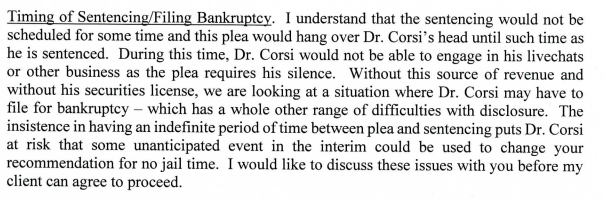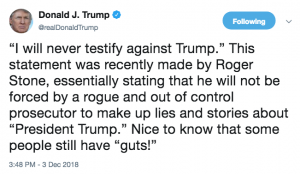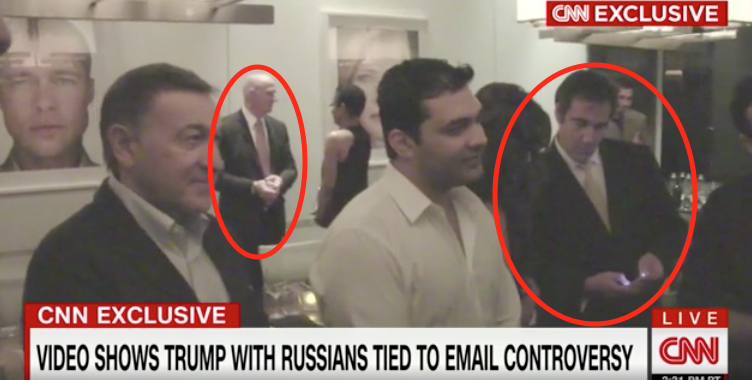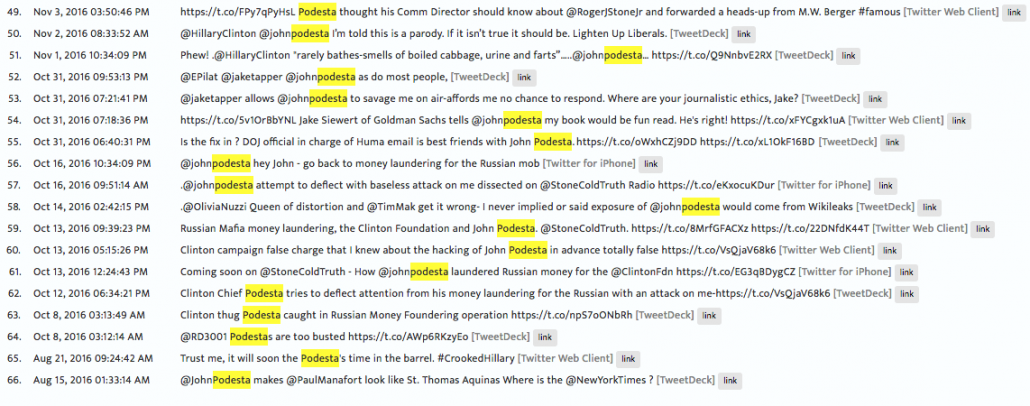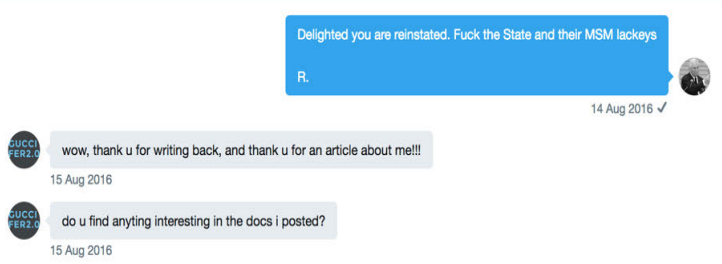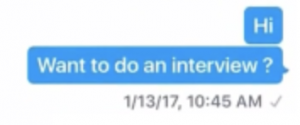Roger Stone and Jerome Corsi’s Matryoshka Cover-Up
I want to reverse engineer the serial cover-ups that Jerome Corsi and Roger Stone have attempted, at least as disclosed by Corsi’s leaked statement of the offense.
I will assume, for this post’s purposes, that Corsi and Stone not only learned that John Podesta’s emails were going to be released, but also at least some information about what they would contain, as laid out in these two posts. Given the elaborate cover-up I’m about to lay out, it seems likely that where and how they learned that is quite sensitive.
The immediate cover story (probably for knowledge that Joule Holding documents would be released)
The first cover-up, at least according to Corsi, came within a month of the time whatever they’re trying to cover-up happened. Nine days after Stone tweeted that it would soon be Podesta’s time in the barrel, he called Corsi and asked him to invent an alternate explanation for it.
He said in an interview Tuesday that Mr. Stone called him on Aug. 30, 2016—nine days after the tweet—and asked Mr. Corsi for help in creating an “alternative explanation” for it.
Shortly after that conversation, Mr. Corsi said he began writing a memo for Mr. Stone about Mr. Podesta’s business dealings. In the following months, both Mr. Stone and Mr. Corsi said the memo was the inspiration for his tweet, even though it was in fact written afterward, Mr. Corsi said.
“What I construct, and what I testified to the grand jury, was I believed I was creating a cover story for Roger, because Roger wanted to explain this tweet,” Mr. Corsi said. “By the way, the special counsel knew this. They can virtually tell my keystrokes on that computer.”
In the version of the story Corsi told Chuck Ross, he seems to have forgotten the parts of the phone call where he and Stone explained why it was so important he have a cover story.
Corsi writes that his alleged cover up plan with Stone began on Aug. 30, 2016, when Stone emailed him asking to speak on the phone.
“I have no precise recollection of that phone call,” writes Corsi, adding, “But from what happened next, I have reconstructed that in the phone call Stone told me he was getting heat for his tweet and needed some cover.”
Corsi claimed he had begun researching John Podesta’s business links to Russia and believed the research “would make an excellent cover-story for Stone’s unfortunate Tweet.”
Corsi writes that in his phone call later that evening, “I suggested Stone could use me as an excuse, claiming my research on Podesta and Russia was the basis for Stone’s prediction that Podesta would soon be in the pickle barrel.”
“I knew this was a cover-story, in effect not true, since I recalled telling Stone earlier in August that Assange had Podesta emails that he planned to drop as the ‘October Surprise,’ calculated by Assange to deliver a knock-out blow to Hillary Clinton’s presidential aspirations.”
Corsi emailed the nine-page memo to Stone the following day.
“So you knew this was a lie when you wrote the Podesta email,” Zelinsky asked Corsi during one question-and-answer session, he writes.
“Yes, I did,” Corsi responded. “In politics, it’s not unusual to create alternative explanations to deflect the attacks of your political opponents.”
Corsi’s report — as I detailed here — made no sense and makes even less now that we know that Paul Manafort ordered Tony Podesta to hide his Ukrainian consulting, but it distracted from a focus on Joule Holdings that Stone and Corsi had been focused on earlier that month and would return to after the Podesta emails were released in October.
When SSCI announces its investigation, Corsi attempts to destroy evidence of (probably Joule Holding) knowledge prior to October 11
According to Corsi’s draft statement of the offense, he deleted all of his email from before October 11 sometime after January 13, 2017.
Between approximately January 13, 2017 and March 1, 2017, CORSI deleted from his computer all email correspondence that predated October 11, 2016, including Person 1’s email instructing CORSI to “get to [the founder of Organization 1]” and CORSI’s subsequent forwarding of that email to the overseas individual.
There are several things that might explain that date. It was the day after Guccifer 2.0 returned to WordPress to insist he wasn’t a GRU persona. It was days after Obama’s top spooks talked about the Intelligence Community Assessment of the Russian attack, which found that Guccifer 2.0 was a GRU operation. It was the day that the Senate Intelligence Committee announced its investigation.
And January 19 was the day the NYT reported that Stone was under investigation.
Mr. Manafort is among at least three Trump campaign advisers whose possible links to Russia are under scrutiny. Two others are Carter Page, a businessman and former foreign policy adviser to the campaign, and Roger Stone, a longtime Republican operative.
The F.B.I. is leading the investigations, aided by the National Security Agency, the C.I.A. and the Treasury Department’s financial crimes unit. The investigators have accelerated their efforts in recent weeks but have found no conclusive evidence of wrongdoing, the officials said.
[snip]
Mr. Stone, a longtime friend of Mr. Trump’s, said in a speech in Florida last summer that he had communicated with Julian Assange, the founder of WikiLeaks, the anti-secrecy group that published the hacked Democratic emails. During the speech, Mr. Stone predicted further leaks of documents, a prediction that came true within weeks.
In a brief interview on Thursday, Mr. Stone said he had never visited Russia and had no Russian clients. He said that he had worked in Ukraine for a pro-Western party, but that any assertion that he had ties to Russian intelligence was “nonsense” and “totally false.”
Stone falsely claims that the story said he himself was wiretapped (it said Manafort was); he dates it to January 20, when it appeared in the dead tree NYT.
According to the New York Times, I was under surveillance by the Obama administration in 2016. They wrote that on January 20, 2017.
In any case, as I’ve noted, October 11 is the date when the Peter Smith crowd discussed their pleasure with the Podesta emails in coded language.
“[A]n email in the ‘Robert Tyler’ [foldering] account [showing] Mr. Smith obtained $100,000 from at least four financiers as well as a $50,000 contribution from Mr. Smith himself.” The email was dated October 11, 2016 and has the subject line, “Wire Instructions—Clinton Email Reconnaissance Initiative.” It came from someone calling himself “ROB,” describing the funding as supporting “the Washington Scholarship Fund for the Russian students.” The email also notes, “The students are very pleased with the email releases they have seen, and are thrilled with their educational advancement opportunities.” The WSJ states that Ortel is not among the funders named in the email, which means they know who the other four funders are (if one or more were a source for the story, it might explain why WSJ is not revealing that really critical piece of news).
And it’s the date when WikiLeaks released the Podesta emails that had Joule Holdings documents attached.
Thus, it seems likely that Corsi, at least, was trying hide that he had foreknowledge of what WikiLeaks ended up dropping on that day.
Corsi packages up the past August’s cover story publicly
Then, on March 23, 2017, Corsi packaged up the cover story he had laid the groundwork for the previous year. In doing so, however, he acknowledges the common thread of Joule starting on August 1.
Having reviewed my records, I am now confident that I am the source behind Stone’s tweet.
Here is the timeline showing how I got Roger Stone on the track of following the real story – that Podesta played a key role in the Clintons’ plan to get paid by Putin.
On July 31, 2016, the New York Post reported that Peter Schweizer’s Washington-based Government Accountability Institute had published a report entitled, “From Russia with Money: Hillary Clinton, the Russian Reset, and Cronyism.”
That report detailed cash payments from Russia to the Clintons via the Clinton Foundation which included a Putin-connected Russian government fund that transferred $35 million to a small company that included Podesta and several senior Russian officials on its executive board.
“Russian government officials and American corporations participated in the technology transfer project overseen by Hillary Clinton’s State Department that funneled tens of millions of dollars to the Clinton Foundation,” the report noted in the executive summary.
“John Podesta failed to reveal, as required by law on his federal financial disclosures, his membership on the board of this offshore company,” the executive summary continued. “Podesta also headed up a think tank which wrote favorably about the Russian reset while apparently receiving millions from Kremlin-linked Russian oligarchs via an offshore LLC.”
Reading Schweizer’s report, I began conducting extensive research into Secretary Clinton’s “reset” policy with Russia, Podesta’s membership on the board of Joule Global Holdings, N.V. – a shell company in the Netherlands that Russians close to Putin used to launder money – as well as Podesta’s ties to a foundation run by one of the investors in Joule Energy, Hans-Jorg Wyss, a major contributor to the Clinton Foundation.
Note how carefully he postdates the report — which he has testified before the grand jury he wrote very quickly on August 30 — to August 14.
On Aug. 14, 2016, the New York Times reported that a secret ledger in Ukraine listed cash payments for Paul Manafort, a consultant to the Ukraine’s former President Viktor F. Yanukovych.
When this article was published, I suggested to Roger Stone that the attack over Manafort’s ties to Russia needed to be countered.
My plan was to publicize the Government Accountability Institute’s report, “From Russia With Money,” that documented how Putin paid substantial sums of money to both Hillary Clinton and John Podesta.
Putin must have wanted Hillary to win in 2016, if only because Russian under-the-table cash payments to the Clintons and to Podesta would have made blackmailing her as president easy.
On Aug. 14, 2016, I began researching for Roger Stone a memo that I entitled “Podesta.”
Making a cover story about the Credico cover story
On September 26, 2017, Stone testified to HPSCI. He gave no name for his go-between with WikiLeaks. But later that fall, he privately gave them Randy Credico’s name and then released it publicly, claiming that Credico had accurately predicted what would come when.
Randy Credico is a good man. He’s extraordinarily talented. He’s come back from personal adversity .He often using Street theater and satire to illustrate the hypocrisy of our current drug laws and in his fight for Prison reform. He is a fighter for Justice.The Committee is wasting their time. He merely confirmed what Assange had said publicly. He was correct. Wikileaks did have the goods on Hillary and they did release them.
Credico’s three interviews of Julian Assange on WBAI are an example of excellent radio journalism.
Credico merelyconfirmed for Mr. Stone the accuracy of Julian Assange’s interview of June 12, 2016 with the British ITV network, where Assange said he had “e-mails related to Hillary Clinton which are pending publication,”
. [sic] Credico never said he knew or had any information as to source or content of the material. Mr. Credico never said he confirmed this information with Mr. Assange himself. Mr. Stone knew Credico had his own sources within Wikileaks and is credible. Credico turned out to be 100 % accurate.
I initially declined to identify Randy for the Committee fearing that exposure would be used to hurt his professional career and because our conversation was off-the-record and he is journalist. Indeed when his name surfaced in this he was fired at WBAI Radio where he had the highest rated show.
I want to reiterate there is nothing illegal or improper communicating with Julian Assange or Wikileaks. There is no proof Assange or Wikleaks are Russian assets.The CIA’s “assesment” is bullshit.Credico has done nothing wrong.
Then HPSCI subpoenaed Credico, meaning they would check Stone’s cover story (as Mueller has been doing for nine months). Stone apparently told Credico to invoke the Fifth rather than admit that he really wasn’t that go-between.
At that point, Stone asked Corsi to start backing that cover story.
After the U.S. House of Representatives Permanent Select Committee on Intelligence (“HPSCI”), the U.S. Senate Select Committee on Intelligence (“SSCI”), and the Federal Bureau of Investigation (“FBI”) began inquiring in 2017 about Person 1’s connections with Organization 1, CORSI communicated with Person 1 about developments in those investigations. For example, on or about November 28, 2017, after Person 1 had identified to HPSCI a certain individual (“Person 2”) as his “source” or “intermediary” to Organization 1, Person 2 received a subpoena compelling his testimony before HPSCI, and Person 1 learned of the subpoena. On or about November 30, 2017, Person 1 asked CORSI to write publicly about Person 2. CORSI responded: “Are you sure you want to make something out of this now? Why not wait to see what [Person 2] does? You may be defending yourself too much – raising new questions that will fuel new inquiries. This may be a time to say less, not more.” Person 1 responded by telling CORSI that the other individual “will take the 5th—but let’s hold a day.”
Pressuring Credico to sustain the cover story
Finally, sometimes this spring — as Mueller started systematically working through Stone’s associates — Stone pressured Credico not to contest his public claim that he was Stone’s go-between, going so far as threatening him.
“I am so ready. Let’s get it on. Prepare to die cock sucker,” Stone messaged Credico on April 9. Stone was responding to a message from Credico that indicated Credico would release information contradicting Stone’s claims about the 2016 election and that “all will come out.”
Corsi’s lies to prosecutors
As bad luck would have it for Corsi, Mueller’s team interviewed him, not Stone. That meant he was the first person to have to sustain this cover story with the FBI (though of course Stone already did with HPSCI).
When asked on September 6 and (apparently) on September 10, Corsi claimed not to have remembered that he was Stone’s journalist cut-out all this time.
CORSI said he declined the request from Person 1 and made clear to Person 1 that trying to contact Organization 1 could be subject to investigation. CORSI also stated that Person 1 never asked CORSI to have another person try to get in contact with Organization 1, and that CORSI told Person 1 that they should just wait until Organization 1 released any materials.
CORSI further stated that after that initial request from Person 1, CORSI did not know what Person 1 did with respect to Organization 1, and he never provided Person 1 with any information regarding Organization 1, including what materials Organization 1 possessed or what Organization 1 might do with those materials.
He arranged that — the outer layer of the Matryoshka cover story — with his lawyer even before he got asked any questions. Which is going to make his currently operative cover story — that he didn’t remember crafting a multi-level cover story with Stone over the course of over a year — because he had deleted some of the emails reflecting that (but not, apparently, the ones from fall 2017).
It’s fairly clear, this Matryoshka cover-up has become part of Mueller’s investigation. It all suggests that whatever lies inside that last little doll is something so damning that the guy with the Nixon tattoo allowed the cover-up to become a second crime.
As I disclosed in July, I provided information to the FBI on issues related to the Mueller investigation, so I’m going to include disclosure statements on Mueller investigation posts from here on out. I will include the disclosure whether or not the stuff I shared with the FBI pertains to the subject of the post.





